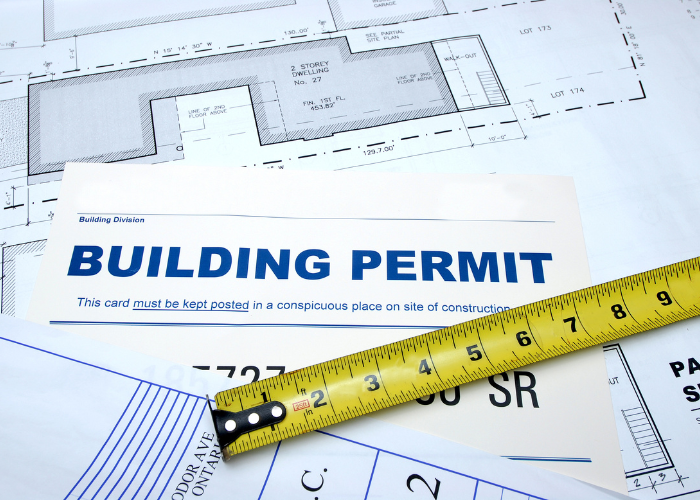How to obtain the necessary permits and ensure that the renovation complies with local laws?
Building permits are one of the most important legal requirements for the successful implementation of construction projects. Before starting any new construction project, it is crucial to ensure that the work fully complies with local laws and regulations. This guarantees that the construction will proceed without obstacles, and once completed, the project will operate on a legal basis—ensuring both safety and success.
Below, we will discuss all the necessary steps related to obtaining building permits, following local standards, and maintaining the legality of the work.
Building Permits and Regulations: Basics of Building Permits
Building permits are issued by local governing bodies after evaluating the submitted project, construction materials, and the nature of the work. The purpose is to ensure that any construction or renovation is performed legally and safely for both residents and visitors to the construction site.
What is a Building Permit?
A building permit is a legal document that allows you to start construction or renovation in accordance with local laws and regulations. Work started without this document may be halted, and responsible individuals may be fined.
A building permit is required in the following cases:
- New construction projects
- Large-scale renovations that include structural changes
- Adding new floors or buildings
- Updating or modifying technical systems (electrical, plumbing, heating systems)
Types of Permits
Permits vary depending on the nature of the work:
- New Construction Permit: Issued for constructing new buildings.
- Renovation and Repair Permit: Required if the renovation involves structural changes or updates to technical systems.
- Special Permits: In some cases, special permits are needed, such as for the renovation of historically or culturally significant buildings.
Requirements for Obtaining a Permit
The process of applying for a permit involves several documents necessary to evaluate whether the project complies with the law.
Key requirements include:
- Provision of design documents
- Approved drawings and plans
- Description of construction work, including its purpose and dimensions
- Proof of ownership of the building or property
These documents must be submitted to the local authority responsible for issuing building permits.
Procedure for Obtaining a Permit
Obtaining a building permit involves several bureaucratic steps. Although the process may differ by region, the main steps are generally similar.
How to Apply for a Building Permit
The application process begins with the preparation of detailed project documents:
- Application Preparation: The application must be thorough, including all required documents, drawings, and technical descriptions.
- Study of Laws and Regulations: Before submitting the application, it is important to review all local laws and regulations to ensure the project meets all requirements.
- Consultation with Local Authorities: In many cases, it can be helpful to consult with local officials to confirm that the project complies with local requirements.
- Document Submission: Once the application is ready, it must be submitted to the relevant authority responsible for building permits.
Monitoring Submitted Applications
After submitting the application, it is necessary to regularly follow up on its progress. Sometimes, additional documents or information may be requested.
How to Speed Up the Process
- Ensure that all documents are correct and complete.
- If possible, hire a specialist to check the documents and submit the application on your behalf.
Possible Reasons for Permit Denial
The main reasons for denial are incomplete drawings or non-compliance with legal requirements.
Common reasons include:
- Missing or improper documentation
- Structural violations in the design
- Technical requirements that do not meet the standards
If a permit is denied, the project should be reviewed and the errors corrected.
Compliance with Local Laws and Building Standards
Following local construction standards is a key requirement for building projects. These standards are designed to ensure the safety and energy efficiency of buildings.
Construction standards set the criteria that must be met during construction, including:
- Structural safety of the building
- Quality standards for work performed
- Technical requirements (electricity, water, heating)
These standards are designed not only to ensure safety but also to enhance the efficiency and sustainability of buildings.
Fire and Seismic Safety Standards
Fire safety is one of the most critical aspects of construction work. It is necessary to ensure that the building complies with all fire safety requirements, including:
- Safe exits
- Fire alarm systems
- Firefighting equipment
Seismic safety standards require special attention in regions prone to earthquakes. These standards specify what types of structures and materials should be used to ensure buildings can withstand seismic effects.
Environmental Standards
Construction must also comply with environmental standards, which include:
- Use of eco-friendly materials
- Improvement of energy efficiency
- Implementation of water and energy-saving technologies
Maintaining ecological standards in construction projects is becoming increasingly important, considering the limited availability of natural resources.
How to Ensure Compliance with Permits and Standards
Regular inspections and the validity of documents are essential to confirm that the construction complies with the law.
To monitor the building permit process, regular inspections may be necessary. Official inspectors can visit the construction site to verify that the work complies with legal requirements.
All project documents must be preserved, as they may be requested by government bodies at any time.
Possible Fines and Legal Consequences for Lack of Permits
If construction work begins without the appropriate permits, various fines and penalties may be imposed.
These may include:
- Suspension of work
- Financial penalties
- Other legal consequences
To avoid these risks, it is essential to ensure that all work complies with all local laws before starting.






